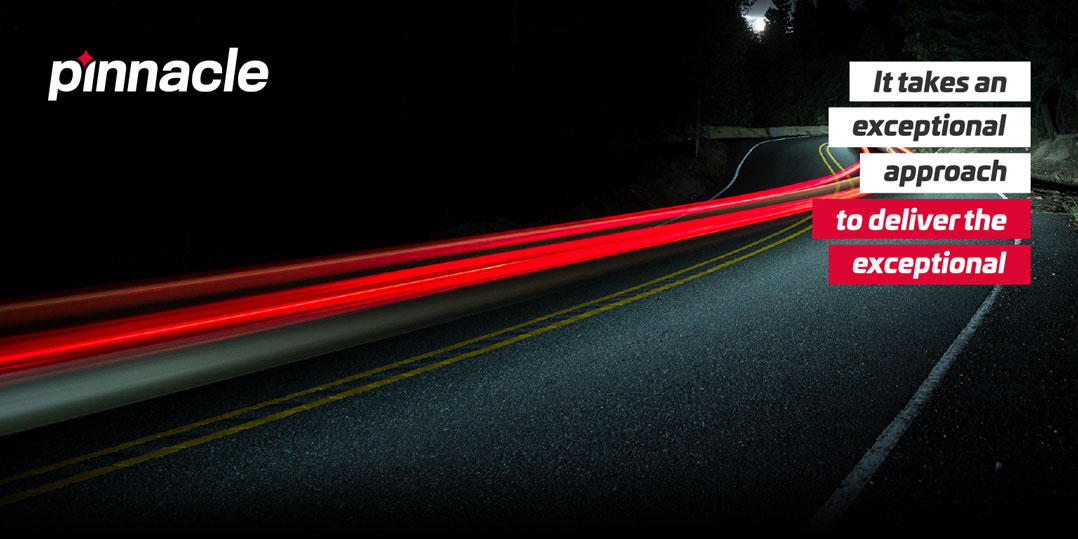TechCentral’s CxO Insights is a fresh look at the roles and careers that define the technology industry today. In this series, we’ll interview some of South Africa’s most successful, interesting and prominent individuals to find out how their roles evolved, the skills they need to succeed in these roles, and what has influenced or shaped their careers. These interviews provide an in-depth look into how technology is redefining the boundaries of career, skills and growth within the digitally transformed organisation.
In this profile, we get to know Pierre Cronje, senior manager: operational customer engagement at BCX.

The year that was 2020. Tough, transformative, disruptive and comprehensively altering. It was a year shaped by a global pandemic so vast that it shifted how organisations, individuals and governments thought and acted.
Within this turmoil, the retail sector had to adapt to rigid regulations and restrictions, remaining afloat and relevant while juggling complex limitations. According to Pierre Cronje, senior manager: operational engagement at BCX, the pandemic has changed the future of retail significantly.
“Retailers focused on brick-and-mortar stores in order to maximise their sales resulting in a very competitive and very saturated South African retail market,” he explains. “You opened up a mall and there were at least five of the most well-known retail brands taking up space competing for the consumers attention, brand loyalty and most importantly, money. These retail giants then turned their sights into Africa, Europe and Australia in an attempt to expand their networks and footprints – a move that was successful for some, but largely limited due to economic and political climates in some African countries and tough trading conditions in the rest of the world or unexpected complications and challenges. This means that retailers needed to stay relevant in South Africa, where they originated, and had to find new ways of retaining and growing their revenue base in country.”
This strategy saw most companies turn to technology. It offered them alternative ways of engaging with current and prospective customers, exploring new markets, and innovating with new products and ideas. Then lockdown happened and it catapulted every business forward in terms of strategy and thinking. Suddenly the retailers sat with the high cost of physical stores but with no feet frequenting these stores. They had to quickly find a way to be profitable. They were now engaging with a customer base that didn’t want to go into a store, that wanted to shop online, and that wanted the convenience of door-to-door delivery. Consumers weren’t chatting to their peers about where they were shopping but rather which app worked best and who offered the best, quickest and safest home deliveries.
‘Interesting place to be’
“Right now, malls and megastores are trying to get feet back through their doors – just look at the promotions and competitions offered by the large shopping centres as an example. That’s because most people have migrated to the smaller or micro-malls that are perceived to be safer and more convenient for those shoppers who want get in and get out with the goods they need,” says Cronje.
“It’s an interesting place for the sector to be. It is a balancing act now of trying to get feet back into stores but also capitalise on the influx of online shopping revenue, putting pressure on the retailers’ e-commerce strategies and offerings. In many cases, the capex allocated for traditional growth and expansion is being refocused on e-commerce, upgrading online apps and associated demand on the supply chain.”
Indeed, the move to online shopping has had a knock-on impact on the supply chain. Instant deliveries from shopping applications can’t be fulfilled from giant distribution centres geared for store deliveries; now they are being fulfilled by local stores. They have to be fast and efficient. Retailers have to manage market trends and supply-chain efficiencies to speed up deliveries, ensure adequate stock provision, and to minimise queueing.
CxO: Pierre Cronje
Title: Senior manager: operational engagement, BCX
Windows or Mac: Windows
Android or iPhone: iPhone
Best tech purchase: iPod nano
“The market is saturated and retailers are fighting for their share of the customer wallet, so they have to look at their supply chain and find ways of optimising it to ensure customer delight,” says Cronje. “They also have to pay attention to their backend and e-commerce investments, ensuring that customers get the best possible service, whether it be online or instore. Retailers need to find innovative ways of servicing the customer so that their feet are always drawn back to their doors, whether they are virtual or physical.”
South African retailers have put a lot of effort into applications that offer rapid delivery to home-locked customers, and into creating physical-store efficiencies that minimise risk and improve experiences. What lies ahead is a market on the cusp of something new – a hybrid blend of online and physical that’s capable of adapting to customer, market and unplanned uncertainty, with ease.
“Retailers are engaged and they are looking for solutions that empower them and their customers,” says Cronje. “Technology investments and developments are allowing them to find the balances between supply chain irregularities, customer concerns, regulations and market trends. It’s not an easy space, but it’s one that’s definitely igniting some impressive local transformation.”
 Q&A with Pierre Cronje
Q&A with Pierre Cronje
TechCentral: What’s the most important part of your job?
“Being prepared to help retailers do more.”
The future of retail is changing rapidly, and my role is to ensure that we are prepared for what lies ahead so we can serve our retail customers better. This year has been an unbelievably difficult year for retailers in South Africa. Even after lockdown, it’s been a rollercoaster — one week everything is back to the new normal and there is stability, the next everything has changed again. My role is to work with our customers, for our business to support their needs through these tough times and help them more effectively manage the supply chain, the customer experience and the business.
What’s your top tip for staying ahead in your field?
“Understand the customer.”
You have to align yourself with the retailers and their strategies and really dig down into where they are going. You need to build partnerships and relationships that allow you to really understand the industry and what it needs.
What’s the biggest trend impacting on your field in the decade ahead?
“Convenience is the future.”
Convenience, both online and instore, is exploding in South Africa. People have converted from the traditional way of shopping during the pandemic and this trend is here to stay. It will be a key differentiator for retailers as well – they’re going to need to invest into fully fledged e-commerce solutions that help them maximise their conversion of online sales. This new change will put a lot more focus on the supply chain in the retail industry. No longer will the end of the supply chain be goods on the shelves, it will now be goods in the consumer’s hands at their convenience. We have already seen retailers who have grasped the concept and they are pulling ahead of their competitors very quickly.
What was your first job?
“Installing Windows 95 e-mail PCs.”
I started as a contractor (junior customer engineer), installing Windows 95 e-mail PCs for a large retailer, as part of their modernisation to e-mail project in 2000. My first day on the job I was sent to Piet Retief (more than 300km drive). The retail bug bit and I quite quickly started working my way through the ranks until I found the perfect fit and my passion in customer engagement and driving service excellence.
What advice would you give to young people interested in pursuing a career in IT management?
“Build relationships.”
People buy from people – yes … such a yesterday statement but nevertheless very true. What’s key is relationships and building on connections you have with people. Service excellence is about understanding your customers’ needs, creating a solution to fit those needs and delivering what you promised.
Who do you most admire in business?
“Bill Gates.”
He recently topped my most admired list after I watched the best documentary I have seen this year, Inside Bill’s Brain: Decoding Bill Gates. What an amazing story! Especially after what he achieved in business. He’s an inspirational leader and has amazing insights. Incidentally, his was the first business book that I read back in 1995, The Road Ahead. — © 2020 NewsCentral Media



